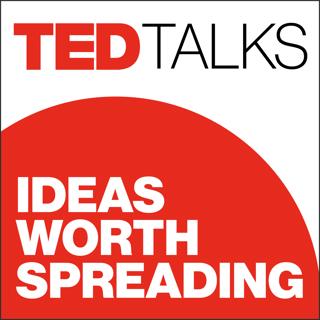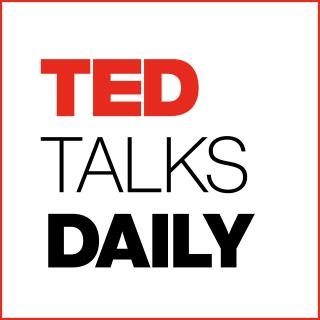
What I learned when I conquered the world's toughest triathlon | Minda Dentler
A 2.4-mile swim, a 112-mile bicycle ride and then a full-length marathon on hot, dry ground -- with no breaks in between: the legendary Ironman triathlon in Kona, Hawaii, is a bucket list goal for champion athletes. But when Minda Dentler decided to take it on, she had bigger aspirations than just another medal around her neck. She tells the inspiring story of how she conquered this epic race, and what it inspired her to do next. Hosted on Acast. See acast.com/privacy for more information.
5 Maalis 201813min

How to connect with depressed friends | Bill Bernat
Want to connect with a depressed friend but not sure how to relate to them? Comedian and storyteller Bill Bernat has a few suggestions. Learn some dos and don'ts for talking to people living with depression -- and handle your next conversation with grace and, maybe, a bit of humor. Hosted on Acast. See acast.com/privacy for more information.
2 Maalis 201813min

How we became sisters | Felice Belle and Jennifer Murphy
Poets Felice Belle and Jennifer Murphy perform excerpts from their play "Other Women," which is created and directed by Monica L. Williams. In a captivating journey, they weave together stories full of laughter, loyalty, tragedy and heartbreak, recalling the moments that made them sisters. Hosted on Acast. See acast.com/privacy for more information.
2 Maalis 201812min

To learn is to be free | Shameem Akhtar
Shameem Akhtar posed as a boy during her early childhood in Pakistan so she could enjoy the privileges Pakistani girls are rarely afforded: to play outside and attend school. In an eye-opening, personal talk, Akhtar recounts how the opportunity to get an education altered the course of her life -- and ultimately changed the culture of her village, where today every young girl goes to school. Hosted on Acast. See acast.com/privacy for more information.
1 Maalis 201812min

How we look kilometers below the Antarctic ice sheet | Dustin Schroeder
Antarctica is a vast and dynamic place, but radar technologies -- from World War II-era film to state-of-the-art miniaturized sensors -- are enabling scientists to observe and understand changes beneath the continent's ice in unprecedented detail. Join radio glaciologist Dustin Schroeder on a flight high above Antarctica and see how ice-penetrating radar is helping us learn about future sea level rise -- and what the melting ice will mean for us all. Hosted on Acast. See acast.com/privacy for more information.
1 Maalis 201811min

The role of human emotions in science and research | Illona Stengel
Do human emotions have a role to play in science and research? Material researcher Ilona Stengel suggests that instead of opposing each other, emotions and logic complement and reinforce each other. She shares a case study on how properly using emotions (like the empowering feeling of being dedicated to something meaningful) can boost teamwork and personal development -- and catalyze scientific breakthroughs and innovation. Hosted on Acast. See acast.com/privacy for more information.
26 Helmi 201810min

You don't have to be an expert to solve big problems | Tapiwa Chiwewe
Driving in Johannesburg one day, Tapiwa Chiwewe noticed an enormous cloud of air pollution hanging over the city. He was curious and concerned but not an environmental expert -- so he did some research and discovered that nearly 14 percent of all deaths worldwide in 2012 were caused by household and ambient air pollution. With this knowledge and an urge to do something about it, Chiwewe and his colleagues developed a platform that uncovers trends in pollution and helps city planners make better decisions. "Sometimes just one fresh perspective, one new skill set, can make the conditions right for something remarkable to happen," Chiwewe says. "But you need to be bold enough to try." Hosted on Acast. See acast.com/privacy for more information.
23 Helmi 20188min

Refugees want empowerment, not handouts | Robert Hakiza
The prevailing image of where refugees live is of temporary camps in isolated areas -- but in reality, nearly 60 percent of them worldwide end up in urban areas. TED Fellow Robert Hakiza takes us inside the lives of urban refugees -- and shows us how organizations like the one that he started can provide them with the skills they need to ultimately become self-sufficient. Hosted on Acast. See acast.com/privacy for more information.
22 Helmi 20186min






















